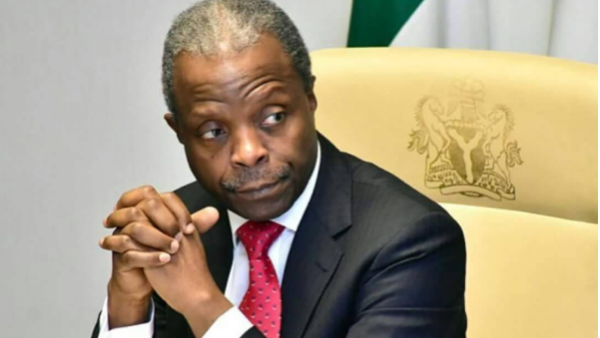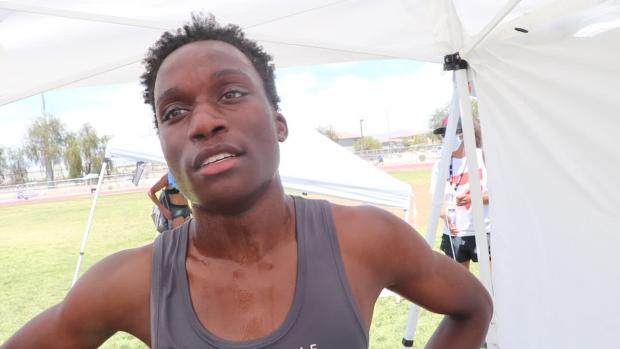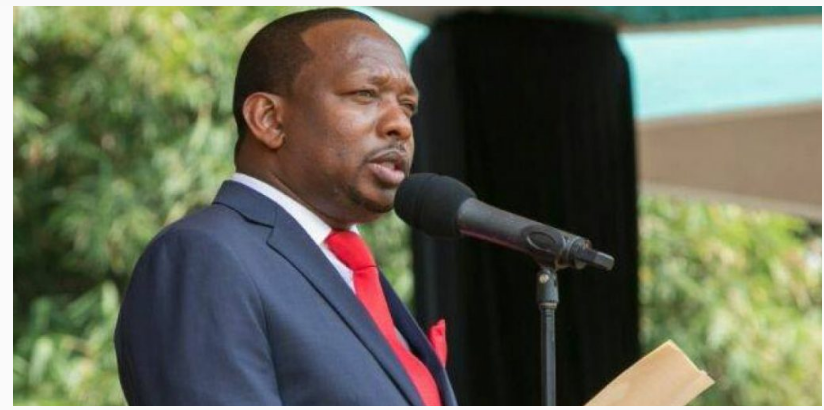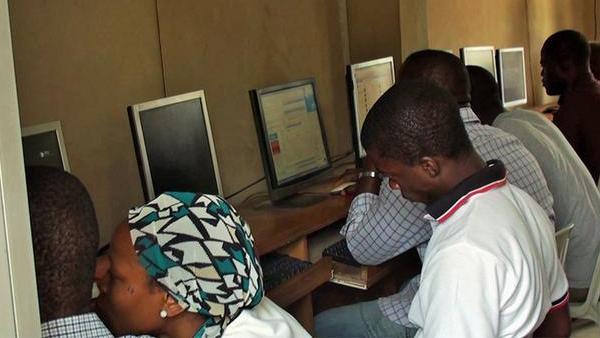Tag: Nairobi
-

DR. Mrs. Winifred Awosika AYSC Trophy Tour heads to Eldoret and Nairobi in Kenya
The first of its kind, the Pan African Youth Scrabble Championship Trophy Tour which began in Accra, Ghana on Sunday will be heading to two Kenyan cities of Eldoret and Nairobi on Friday.A very elated President of the Pan African Scrabble Association (PANASA), Adekoyejo Adegbesan, said, “I’m leaving Accra the Ghanian capital a very happy and satisfied man because of the way the Dr. Mrs. Winifred Awosika AYSC Trophy Tour went.The Dr. Mrs. Winifred Awosika AYSC Trophy was received on arrival at the Kotoka International Airport, Accra, Ghana by the Scrabble fraternity in Ghana led by the President of Scrabble Association of Ghana (SAG), Haruna Adamu.On the second day of the Trophy Tour, Monday a mini scrabble tournament was held in Tema, in honour of the former World Scrabble Champion, Wellington Jighere who was part of the tour delegation.It was the turn of top Ghanaian Government officials led by that country’s Minister of Youth and Sports Honourable Mustapha Ussif and his Deputy and the Deputy general of Ghana Sports Authority among other notable sporting figures to receive the Trophy.On Wednesday and Thursday the Trophy Tour took the Pan African Scrabble Association delegation (PANASA) to some selected schools before closing the day at the Ghana Olympic Committee (GOC) where they met with the President, Ben Nunoo Mensah.Besides the Trophy Tour, the PANASA President, Adekoyejo Adegbesan, used the meeting with the Ghana Olympic Committee boss, Ben Nunoo Mensah and the Chairman of the Local Organizing Committee of the All African Games, Ofosu Asare, to drum up the call for both the French and English version of the game of Scrabble to feature as a demonstration sport during the 2024 All African Games that Ghana is hosting.From Accra, the Dr. Mrs. Winifred Awosika AYSC Trophy Tour will be heading to Eldoret and Nairobi in Kenya for the second leg of its African tour on Friday.Already, the sporting authority and the Scrabble family in that East African State have concluded all the needed and necessary arrangements for a hitch free and equally exciting Trophy Tour starting with the city of Eldoret.Eldoret is a renown city of sporting legends, champions, heros and heroines like David Rudisha, Kipchoge Keino, Leah Mallot, Eliud Kipchoge and recently the London marathon crowned king Kevin Kiptum.On arrival the President of PANASA, Adekoyejo Adegbesan and the former World Champion, Wellington Jighere, will be received at the Eldoret International Airport by Uasin Gishu County Government Officials accompanied by the President Scrabble Kenya Kipkemboi Limo and the host John Sang.The delegation will proceed to the Uasin Gishu County Government (UCG) headquarters for signing of visitor’s book and breakfast courtesy of Uasin Gishu County Government.From there, the PANASA delegation will proceed to the venue of the Eldoret International Scrabble Tournament in company of the Uasin Gishu County Governor Jonathan Chelilim and the Kenya Sports Minister Engineer Lucy Njoroge.Top wordsmith from Kenya, Uganda, Liberia and Nigeria led by two time African Champion, Wellington Jighere will be competing for honours at Eldoret Tournament which is part of the AYSC Trophy Tour that will be taking round some selected schools in Eldoret.The Dr. Mrs. Winifred Awosika AYSC Trophy Tour of Eldoret will start on 5th and end and the 7th of May, 2023 before the Trophy Tour caravan move into Nairobi the Kenyan capital.Liberia, Uganda and host Nigeria are the other countries that the AYSC Trophy will tour before the start of the Inaugural edition of the Pan African Youth Scrabble Championship holding at the Chrisland School Idimu-Lagos, Nigeria between the 24th and 28th of August, 2023.Over a hundred and twenty children from 12 African countries are expected to compete for honours in two categories, U-15 and U-19 Championships with princely prizes on offer. -

SAD: Methodist Church wedding guests killed in road accident
Four people travelling for a wedding ceremony in Nairobi, Kenya have been reported dead after the vehicle they were in involved in a road accident.
According to local media reports, several others were injured in the road crash that occurred in Njuri, Tharaka Nithi on the Meru-Nairobi Highway early Saturday.
TheNewsGuru.com (TNG) learnt that a bus belonging to Ruiri Girl’s High School was ferrying members of Thau Methodist Church from Tigania West to the wedding ceremony in Karen, Nairobi when the accident happened at around 5 am.
Tharaka Nithi County Disaster Manager, Mr Alex Mugambi confirmed the accident.
“Survivors were taken to Chuka County Referral Hospital and four people, who we fear are dead, are still trapped in the wreckage,” said Mr Mugambi.
Thau church chairman, Joseph Limuli said the driver lost control of the bus after one of its tyres burst. He said they had left the village after 2am.
“We are worried that the four who are trapped may be dead now because they are currently not responding to calls like before,” said Mr Limuli.
-

Osinbajo arrives in Nairobi for Ruto’s inauguration
Vice President Yemi Osinbajo has arrived in Nairobi, Kenya to represent Nigeria at the Kenyan presidential inauguration.
The event, which comes up on Tuesday at Kasarani Stadium, Nairobi, will be Kenya’s fifth presidential inauguration.
Osinbajo was received at the Jomo Kenyatta International Airport, Nairobi, by former Governor of Kwale County, Salim Mvurya, Nigerian Ambassador to Kenya, Yusuf Yumusa and other senior government officials.
Deputy President, William Ruto was on Aug. 15, declared winner of Kenya’s presidential election held on Aug. 9.
Independent Electoral and Boundaries Commission (IEBC) Chairman, Wafula Chebukati, said Ruto had won almost 7.18 million votes or 50.49 per cent, against 6.94 million or 48.85 per cent, for his rival, Raila Odinga.
Kenya’s Supreme Court, on Sept. 5, upheld Rutho’s electoral victory.
The vice-president is accompanied on the trip by the Minister of State for Foreign Affairs, Amb. Zubairu Dada and the Special Adviser to the President on Political Matters, Sen. Babafemi Ojudu.
Nigeria and Kenya, both former British colonies, enjoy good diplomatic relationship and had signed agreements on trade and agriculture, among other areas of cooperation.
-

From Nairobi to Nigeria: Kenyan election as a mirror election – By Dakuku Peterside
It is not always that an election in one part of the world can function as a mirror in another part of the globe. Societies differ in demographics, political and historical evolution, and the general economic issues that shape elections. The general election in Kenya that took place on Tuesday 9th August is in many ways a mirror of the forthcoming 2023 elections in Nigeria. This mirroring is primarily evident in their shared democratic characteristics, current economic climate, and socio-political milieu.
Kenya, resemblant of Nigeria, is a former British colony practising multiparty democracy and is multi-ethnic with three dominant ethnic groups vis Kikuyu, Luhya, and Kalenjin. Kenya, like Nigeria, has a young population, with 75% being under 35years. Nigeria and Kenya in their different constitutional provisions require a candidate to obtain 50% plus one vote to win the presidential race, with 25% spread in 24 of 47 Counties. Like our president Buhari, the incumbent president is not a candidate in this election.
Four significant candidates were Raila Odinga, William Ruto, David Mwaura and George Wajackoya. Two, however, are candidates of the major coalition parties. Like most third-world countries, Kenya faces coordination and network challenges in election management.
The two countries have similar core issues that will define the election. The presidential campaign in Kenya was centred on three issues of economy, corruption, and unemployment. The only difference with Nigeria will be the addition of how to tackle the menace of insecurity bedevilling our country.
In most economic indices, Kenya is better than Nigeria. Kenya’s inflation at 7.9% on election month is better than Nigeria’s 18% by June 2022. Public debt is as high as Nigeria’s, and the unemployment rate is spiralling. On the positive side, Kenya is a regional economic giant in East Africa, while Nigeria is a continental giant. Corruption is endemic and deep-rooted in the private and public sectors. These similarities give us the impetus to pay close attention to the Kenyan elections and learn from the outcome.
Kenyan election brought three fundamental issues for consideration: First, the new increased level of electoral transparency occasioned using technology and the increase in deepening democratic tenets among Africans. Democracy, although young in most African countries, is gradually becoming accepted.
The new school of thought in Africa favours democracy and assumes that only a few bent on circumventing democracy are the culprits of democratic disorder that often leads to electoral violence and crisis. Elections are not only free and fair than in the past, but most are beginning to accept the results of the polls leading to less violence and more acceptance of the electoral outcomes.
Second, it is evident that incumbency is no longer an iron ceiling that is almost impossible to break. Incumbent to non-incumbent transition is a sign of maturity of democracy and is anticipated to happen if the incumbent loses many people’s backings. Anybody or party can lose an election if they lose the political patronage of the people. In the past, votes did not count, and election results were manipulated, written, and imposed on the people by the incumbent party or government.
The third is that Africans are beginning to jettison personality politics and focus more on issues that affect their lives. Insecurity, bad economy, and corruption are quickly becoming the thematic thrust of election campaigns, and the people are getting more likely to vote on their conviction of how candidates will tackle issues plaguing the country than relying on the cult of personality that is more ethnic and religious oriented.
At the end of the Kenyan elections, three patterns have emerged that are instructive to Nigerian politicians, the election management body (INEC) and the electorate. The first pattern is technology’s positive influence on electoral outcomes. Technology deepens electoral transparency, enhances free and fair elections, and reduces rigging. The root of electoral violence in Africa is the lack of trust by stakeholders in the electoral process. Somaliland was the first to use iris recognition for voter accreditation and followed it up with electronic voting. Somaliland went from a war zone to a respected nation in a credible electoral process.
On the other hand, Kenya, which witnessed violence in its 2017 elections, deployed technology to add credibility to the electoral processes. It deepened the application of technology in 2022 using a specially designed Kenya Integrated Electronic Management System (KIEMS), and this reduced the 3-prong evil of violence, rigging and result disputation to its minimum. South Africa and Ghana are other African countries that have taken maximum advantage of technology to deliver free, fair, and credible elections with minimal or no disputation of results.
BVAS, introduced by the electoral commission in Nigeria, like Kenya KIEMS, is an advanced voter identification technology that will be hostile to election riggers, effectively ending the old order. We saw this in recent elections at Anambra, Ekiti and Osun, and nobody challenged the results based on the number in each of those elections. BVAS, according to INEC, promises to deliver elections that reflect the people’s wishes.
The second pattern is that influence of the incumbent on the electoral outcome is beginning to wane. The use of state resources to influence voters will soon be history. Social media and citizens’ vigilance combine to rub government officials of secrecy to deploy state resources at will. Voters who are sure they can cast their votes in secret will vote according to their conscience. Voters are more informed, enlightened, and ready to defend their votes and voices at all costs.
They are more active and less fearful of state apparatus wielding power when deployed to influence elections. It is common knowledge that when incumbents deploy considerable resources to influence voters, many collect the financial inducements and yet vote for candidates most qualified to lead. The third pattern is that the quality of electoral laws and rules are beginning to impact on quality and outcome of elections. We saw this with the electoral reforms in Kenya. The electoral laws and regulations are beginning to provide a level playing field for all parties and voters. Power resides with the people and not local oligarchs somewhere.
Even stakeholders are beginning to buy in on the issue of transparency in elections. It is worthy of note that in the last Kenya elections, the media are becoming unbiased and partisan. For instance, the two leading candidates held simultaneous final rallies in Nairobi, and the police did not interfere. Newspapers, TV, and radios gave balanced and equal coverage to the campaigns. The campaign coverages are a pleasure to watch. To gain support among a disaffected electorate, politicians have had to hinge their campaigns or movement on the country’s pressing economic issues, prompting a shift away from the country’s ethnic and personality-driven politics toward issue-based campaigns.
Tuesday’s polls were peaceful, with isolated violence cases in the northern region. The corrosive ethnic politics that framed previous electoral contests is ebbing . The critical question in the coming days is not only who won the race but whether the loser will accept defeat. This is a sign of maturity of the political players. It is evident from developments in Kenya that the train of history has left Kikuyu hegemony and dynastic politics.
Similarly, Nigeria may witness the end of ethnic politics in 2023. The critical issue in Nigeria, as we saw in Kenya, will be who among the candidates can secure the welfare of the majority. Poverty and hunger have no ethnic colouration. So, hunger and poverty are weaponised to push the electorate to vote for candidates that seem in tune with the economic and corruption realities and usher hope and belief in their future.
Kenya is leading the way in Africa in gender equity in politics and must be emulated by Nigeria and other African countries. According to IFES FAQ on the 2022 Kenyan elections, “Kenya’s legal framework includes firm principles of gender equity. According to the 2010 Constitution, no more than two-thirds of the membership of any elective body in Kenya may be of the same sex. In this respect, the National Assembly reserves forty-seven seats for women and the Senate reserves sixteen for women, with two more Senate seats reserved for women representing youth and persons with disabilities.” Interestingly, three out of the four presidential candidates chose female running mates. Similarly, the country believes in the twinning principle.
Another exemplary provision in Kenyan electoral law is the out-of-country voting provision. According to IEBC, out-of-country voting is allowed for the presidential election only.
Kenyan voters outside the country may only vote from twelve countries, chosen based on the number of Kenyans who live there. These voting took place in Tanzania, Uganda, Rwanda, Burundi, South Africa, South Sudan, Germany, United Kingdom, Qatar, United Arab Emirates, Canada, and the US.It is quite unfortunate that despite the enormous contributions of Nigerians in Diaspora to the country’s economy and image laundry, they have no say in determining the political leadership of their homeland except they take the cumbersome option of travelling down to Nigeria to register and later to vote.
Finally, It can only be hoped that free and fair elections are not seen as ends in themselves. Instead, free and fair elections should produce governments that can end illiteracy, poverty, unemployment and limited enlightenment.
Only by so doing can democracy improve and entrench itself to become an integral part of the value and cultural reality of tomorrow’s Africa.
All eyes are now on Angola (August 2022), Chad (September 2022), Lesotho (Oct 2022), Somaliland (Nov 2022), Sudan (December 2022) and Nigeria (Feb 2023) to deliver free, fair, and credible elections, deepen democracy, promote political transformation, increase prosperity and give Africa hope of a bright future. Nigeria must show leadership and use the 2023 election to highlight democratic resilience and deep-rooted principles in the Nigerian democratic culture.
-

Police officer kills wife, self, 5 others
A police officer in Nairobi allegedly killed six people, including his wife, before finally turning the gun on himself early on Tuesday.
According to police, security forces became aware something was amiss after a loud noise was heard in the officer’s apartment followed by the sound of gunfire.
Armed with an AK-47, the man is believed to have first shot his wife before randomly targeting passersby in his neighbourhood in the Kenyan capital.
The shooter’s motive was not initially clear.
Shortly after the shooting, mourners gathered to protest, demanding compensation for relatives of the dead.
The demonstrations quickly descended into unrest and a mob burned tyres and blocked a major highway before police were able to disperse the crowd.
-

World Athletics Under-20 Championships: Onwuzurike, Ofili in 200m finals
Nigeria’s Udodi Onwuzurike on Friday qualified for Saturday’s final of the men’s 200 metres event at the ongoing World Athletics Under-20 Championships in Nairobi, Kenya.
The News Agency of Nigeria (NAN) reports that Onwuzurike ran in at 20.13 seconds to win heat 2 of the event, ahead of South Africa’s Sinesipho Dambile who finished second with 20.45.
Blessing Afrifah of Israel was third with 20.47, and the three of them advanced to join five others from heats 1 and 3 for the final.
Nigeria’s Adekalu Fakorede was however not as successful after finishing sixth in heat 1, following a time of 20.87 which was even his personal best.
NAN reports that Onwuzurike, who now has the fastest qualification time among the eight finalists, had clocked a personal best 20.47 to win the first round’s heat 1.
Fakorede had finished fifth then in heat 4 with 21.14 to squeeze into the semi-finals as one of the fastest losers.
In the women’s 200m semi-finals, Nigeria’s Favour Ofili was impressive when winning heat 3 in 22.37 to advance to Saturday’s final.
She had won heat 5 of the first round in 22.74 to advance to the semi-finals earlier in the day.
Teammate Anita Taviore could not go beyond the semi-finals on her part, after finishing last in heat 2 with 24.37.
Namibia’s Beatrice Masilingi was quickest in the semi-finals, taking victory with 22.19 to qualify for the final, just 17 hours after winning the silver medal in the 100m.
“I felt a bit fatigued and I am a little surprised I ran that good,” she said. “Yesterday’s success is now passed, and I am gearing up for the remaining race.”
Her compatriot Christine Mboma, the Olympic silver medallist, also advanced to the final with 22.41.
The Namibian duo, as well as Jamaica’s Brianna Lyston, will however no doubt be among those to challenge for medals with Ofili in the final.
Competition at the championships which officially began in Nairobi on Tuesday is expected to end on Sunday.
-

BREAKING: Senator resigns for flouting COVID-19 protocols
A Senator in Kenya, Senator Sakaja Johnson has officially resigned as Chairperson of Kenyan Senate’s ad-hoc committee on Coronavirus disease (COVID-19).
TheNewsGuru.com (TNG) reports Senator Johnson, representing Nairobi City County, announced his resignation with a letter addressed to the Speaker of the Senate.
Senator Johnson was arrested for violating Covid-19 measures. When charged, he pleaded guilty to breaching curfew and was sentenced to pay Sh15,000 (about N53,000) fine or 3 months in jail.
https://twitter.com/teddyeugene/status/1284350277923958784?s=19
-

Seven children killed in Nairobi classroom collapse
Seven primary school children died and dozens more were injured when their classroom collapsed on Monday morning in the Kenyan capital Nairobi, a government spokesman said.
“So far we can confirm that we have seven fatalities and 57 others are in hospital,” government spokesman Cyrus Oguna said at the scene.
Hundreds of angry residents of Dagoretti — a poor area where many live in makeshift houses — swarmed around the site where rescuers picked through the rubble of the classroom.
An AFP reporter at the site said books and desks were strewn through the debris of the semi-permanent structure, made of concrete, iron sheeting and timber. The structure had been partly raised up to add a storey.
The building collapsed shortly after seven am as pupils entered the classroom.
“Seven pupils dead, several injured after a classroom collapsed at (Precious) Talent Academy in Dagoretti,” St John Ambulance — whose rescuers were involved in the search and rescue — wrote on Twitter.
-

Cyber security: Africa gets Internet security guidelines
The Internet Society and the African Union Commission on Wednesday unveiled a new Internet Infrastructure Security Guidelines for Africa.
According to a statement by Mr Michelle Anekeya, the society’s Communications Officer, the guideline was launched at the ongoing African Internet Summit, taking place in Nairobi.
He said the 3-day summit, which started on Wednesday, May 31 will end on Friday, June 2.
Anekeya said the guidelines would help Africa to create a more secure Internet infrastructure, saying it sets to change the way African Union States approach cyber security preparedness.
He said the guidelines, the first of their kind in Africa, were developed by a multi-stakeholder group of African and global internet infrastructure security experts, as the first step towards building a more secure Internet in Africa.
He said the guidelines would help AU member states strengthen the security of their local Internet infrastructure through actions at a regional, national, ISP/operator and organisational level.
He added that Africa’s cyber security environment was facing a unique combination of challenges, including a lack of awareness of the risks involved in using technology.
“Kenya was ranked the 69th most vulnerable country out of 127 in the 2015 Deloitte Global Threat Index.
“Some of the main reasons are: low awareness, underinvestment, talent shortage and overload of data. Deloitte further estimates that Kenya lost $171 million to cybercrime in 2016.
“Africa has achieved major strides in developing its Internet Infrastructure in the past decade.
“However, the Internet won’t provide the aspired benefits unless we can trust it.
“We have seen from recent experiences that Africa is not immune from cyber-attacks and other security threats.
“These guidelines, developed in collaboration with the African Union Commission, will help African countries put in place the necessary measures to increase the security of their Internet infrastructure,” Anekeya said.
According to him, the guidelines offer actions that are tailored to the African cyber security environment and solutions for an ever changing online landscape.
He quoted Dawit Bekele, Africa Regional Bureau Director for the Internet Society, as saying that the document was launched at a time when the world felt the real and urgent need to build and reinforce structures aimed at tackling the growing cyber threat to the global digital economy.
He added that Governments, companies, network operators, universities and organisations across African Union member states are encouraged to take action to implement the Internet
“The Commission of the African Union will continue its partnership with the Internet Society on a second set of guidelines addressing personal data protection in Africa,” he added.
Anekeya said according to ITU ICT Facts and Figures 2016, it was estimated that 25.1 percent of Africans were now online.
He said despite lower Internet access rates compared to other regions in the world, there had been a sustained double-digit growth in Internet penetration over the past 10 years in the continent.
He said this was partly due to an increase of mobile Internet and in more affordable smart phones in the market and Africa’s young, technology-savvy population.
He said to continue to improve access and connect the unconnected, people needed to trust the Internet.
Symantec, a global leader in cyber security, observed that 24 million malware incidents were targeted at Africa in 2016.